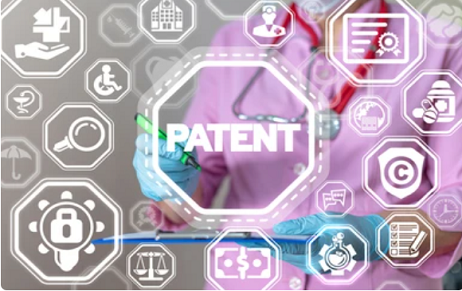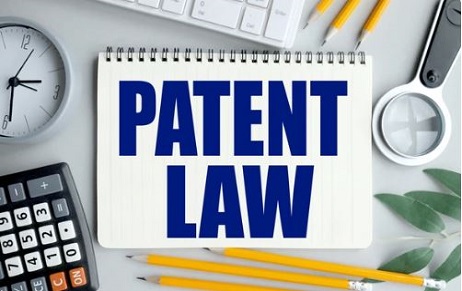Audi is a leading technology company focused on innovation and creating and monetizing its Intellectual…
Easement of IP laws and the concerns of India and South Africa
Recently, India and South Africa have filed a joint submission to the Council of the Trade-Related Aspects of Intellectual Property Rights (TRIS), requesting the WTO to waive off certain provisions of the TRIPS Agreement, in order to make sure that developed nations do not hoard COVID-19 vaccines or other related medicines, and the same is available globally at affordable prices. In this article, the author has discussed various legalities of this request, mainly, what sections are to be relaxed, what is the source of this of WTO.
What is their concern?
The developing countries around the globe are concerned that in case a vaccine gets discovered, it will be difficult for these countries to access vaccines, medicines or any pharmaceutical product because of certain provisions of the TRIPS Agreement. Therefore, India and South Africa have moved to the World Trade Organization, in order to urge them to waive these IP rights.[1] They have clearly mentioned in their submission that there is a very high chance of unavailability or unaffordability of COVID-19 medicines and vaccines, if the IP rights of the creators are not waived.
This concern is legitimate as there have been prior instances wherein, due to the provisions of IP laws(TRIPS Agreement) regarding medical products, certain hindrances were created in the availability of these pharmaceutical products. The procurement and manufacture of N95 masks and other products like surgical masks, gloves, gowns etc. became extremely difficult as the Patent holder (3M) had the rights to prevent third parties from manufacturing its patented products.
What are the legalities of their request?
It is urged by both the nations that the obligation of the Member states to implement sec 1, 4, 5 and 7 of Part II of the TRIPS Agreement shall be waived off, in order to make sure that the powerful and the developed countries do not hoard these vaccines and take advantage of their position in the garb of IP Rights.
Sec 1: This section talks about Copyrights protection and related Rights. The waiver that is requested by the nations will exclude Art 14 that specifically talks about Performers, Producers of Phonograms (Sound Recordings) and Broadcasting Organizations.
Sec 4: As per this section, the owners/creators of an industrial design have the right to exclude others (who do not have the creators consent) from making, selling or even importing articles bearing the protected design or a copy of it.
Even though a limited exception can be allowed by the Members, it should however, not unreasonably infringe the interests of the owner.
Sec 5 :This one talks about patentability, Rights of a patent holder, Exceptions to these rights and other provisions dealing with Patents.
Sec 7 : According to this provision, the members of the Agreement shall protect undisclosed information.
In order to avoid the unavailability, unaffordability or delay in accessing the therapeutics or Vaccines, Both nations urged the Council for TRIPS to recommend to the General Council to waive off the implementation, application and enforcement of sec 1, 4, 5 and 7 of Part II of TRIPS Agreement.
Another concern for the developing nations is that of interplay of Art 31bis and Art 73 of the TRIPS agreement. As per art 31bis, an exporting member can grant a compulsory license to the extent necessary for the purposes of production of a pharmaceutical product(s) and its export to an eligible importing Member(s). This ensures that no barrier regarding patenting comes into play while accessing affordable medical treatment. However, many nations have decided to avoid the usage of Art 31bis for exporting pharmaceutical products to those importing nations that do not have sufficient resources at their disposal.
Another legal issue that concerns the developing nations is that whether the exemptions i.e. National Security exceptions provided in art 73 can be availed or not, during this COVID crises . Art 73 simply states that “[n]othing in [TRIPS] shall be construed (…) to prevent a Member from taking any action which it considers necessary for the protection of its essential security interests (…) (iii) taken in time of war or other emergency in international relations.” So the question that arises here is whether a country that cannot take help of Art 31bis for importing pharmaceutical products, rely on Art 73? As discussed by a panel report (Russia – Traffic in Transit)[2]the clauses of these exceptions provided under Art 73 require an objective determination of the situation. And even though ‘Emergency in international relations’ are considered in reference to armed conflict, the Covid-19 pandemic can be considered as national emergency as it has severe and far reaching consequences (Doha Declaration). [3]
Does the World Trade Organization have this power to waive off an obligation of a member state?
Art IX ( Para 3) of the WTO Agreement is the source of this power, which states that the ministerial conference has the authority and the power to waive an obligation that is imposed by any Multilateral Trade Agreement (TRIPS in the present case) , but only in cases of extraordinary circumstances. This request has to be first communicated to the TRIPS council, which shall further submit a report to the Ministerial Conference.
According to Para 2 of Art IX, this decision of the ministerial conference has to be given along with the justifications of these exceptional situations. Additionally, they also have to state their reasons for making this decision and terms and conditions governing the waiver.
To conclude it can be said that there is a conflict between the rights and interests of the patent holders and the developing countries, and interplay of Vaccine nationalism is also in picture. Now, the authorities (TRIPS Council and WTO Ministerial Conference) have to make sure that these products are available and affordable to the developing countries, while giving importance to the rights and interests of the creators as well.
Author: Aayushi Kulshrestha, a 3rd year law student at Symbiosis law School (Noida), intern at Khurana & Khurana, Advocates and IP Attorneys. In case of any queries please contact/write back to us at aishani@khuranaandkhurana.com.
References:
[1]https://docs.wto.org/dol2fe/Pages/SS/directdoc.aspx?filename=q:/IP/C/W669.pdf&Open=True
[2]https://www.wto.org/english/tratop_e/dispu_e/512r_e.pdf
[3]https://www.wto.org/english/thewto_e/minist_e/min01_e/mindecl_trips_e.htm
[4] https://www.wto.org/english/docs_e/legal_e/31bis_trips_04c_e.htm
[5] https://docs.wto.org/dol2fe/Pages/SS/directdoc.aspx?filename=q:/IP/C/W669.pdf&Open=True
[6] https://www.wto.org/english/tratop_e/dispu_e/512r_e.pdf
[7]https://www.wto.org/english/thewto_e/minist_e/min01_e/mindecl_t



